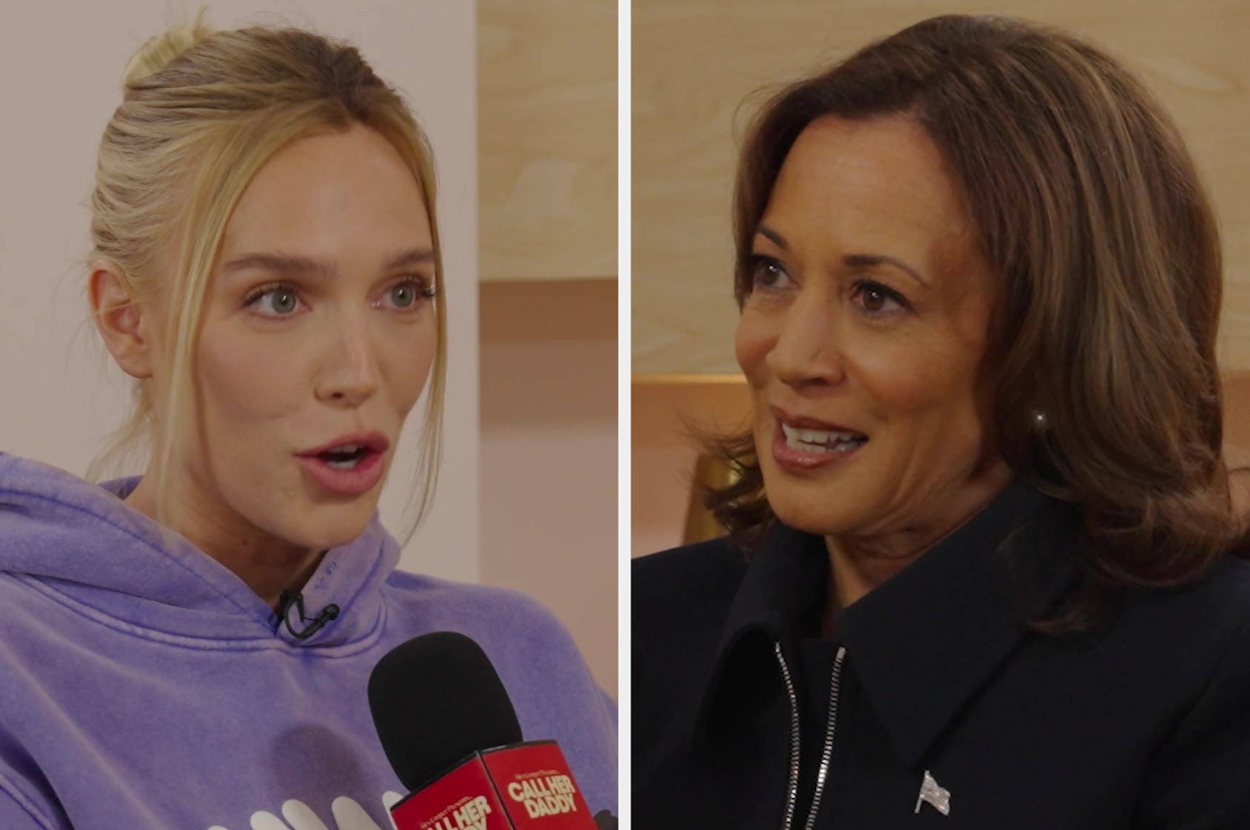Celebritiy
21 Topics Kamala Harris Discussed on Call Her Daddy

Kamala Harris Unveils Key Issues on “Call Her Daddy” Podcast
In a recent episode of the popular podcast “Call Her Daddy,” Vice President Kamala Harris opened up about pressing topics facing women today. The conversation, hosted by Alex Cooper, spanned nearly 44 minutes, during which Harris candidly discussed her views on women’s rights, reproductive health, and her personal experiences that shaped her outlook.
Right off the bat, Harris explained her decision to participate in the podcast, noting, “You and your listeners have figured out that one of the best ways to connect is to be genuine and talk about what truly matters.” She emphasized the importance of individuals feeling heard and part of a wider community, particularly in today’s turbulent times.
Reflecting on her upbringing, Harris shared a vital lesson from her mother about the significance of agency. “I learned early on the importance of not letting things just happen to you,” she stated. This principle guided her throughout her career, as she dedicated herself to protecting the vulnerable and advocating for reproductive freedom.
The Vice President urged listeners to exercise their voting rights, acknowledging the widespread cynicism surrounding politics. “People need to realize that their voices absolutely matter,” she said, pushing back against the notion that democratic engagement is futile.
Delving into more personal territory, Harris recounted a formative incident from her high school years involving her friend Wanda, who endured horrific abuse. Inspired by this experience, she committed to defending victims and championing reforms aimed at safeguarding the vulnerable.
When discussing sexual abuse, Harris offered insights for survivors, encouraging them to confide in trusted individuals and reject feelings of shame. “You have done nothing wrong,” she reassured listeners, underscoring the importance of breaking the silence surrounding such issues.
Addressing systemic challenges, Harris tackled the topic of women’s safety in domestic situations, pointing out that economic reliance often traps women in abusive relationships. “Empowering women economically is critical for providing them the freedom to make choices,” she asserted.
Harris also took a stand against former President Donald Trump’s past statements on women’s rights, particularly concerning abortion. “It’s important to recognize that the government shouldn’t dictate personal choices,” she insisted, challenging the moral implications of such mandates.
The Vice President elaborated on the realities faced by women in states with restrictive abortion laws. “Many women who seek abortion care are already mothers, and their situations are often complex,” she explained, detailing the hurdles they must overcome just to access necessary health care.
She also highlighted discrepancies in public discourse surrounding reproductive rights, mentioning that pivotal services like contraception and cancer screenings are at risk due to legislative action.
Furthermore, Harris debunked false claims made by Trump regarding late-term abortions, categorically stating, “That is not happening anywhere in the United States.” She emphasized that misinformation is detrimental, especially when it comes from influential figures.
Turning her attention to the significance of this election, she stated, “We’re at a critical juncture. The rhetoric used can shape lives—and we need responsible leadership.” She reinforced that discussions surrounding women’s rights and freedoms are essential for a democratic society.
In a pointed response to Sarah Huckabee Sanders’ remarks about her identity, Harris stated, “Women don’t need to be defined by traditional roles.” She made it clear that family comes in diverse forms, emphasizing love and support over conventional expectations.
In a broader context, Harris elaborated on plans to tackle housing affordability and support middle-class families, advocating for measures like tax incentives for homebuyers. Addressing student debt, she reiterated her ongoing battle for relief, recognizing the burden it poses on young families.
Additionally, she spoke on supporting small businesses and startups, proposing increased tax deductions to help entrepreneurs succeed. Ultimately, she expressed her belief in the potential of America, stressing the need for leadership that prioritizes the needs and aspirations of the populace.
This candid conversation illuminated Harris’s commitment to advocacy—urging change while acknowledging the complexities facing women across the nation.
